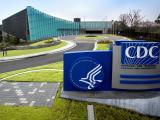Jan 6, 2011 (CIDRAP News) – A long investigative article in BMJ says that the retracted 1998 Lancet report linking autism with the measles, mumps, and rubella (MMR) vaccine was an elaborate fraud designed to support a lawsuit against the vaccine's manufacturer.
The BMJ article by journalist Brian Deer alleges that the Lancet article deliberately misrepresented the medical histories of the 12 children whose cases it described. The story notes Deer's previous report that a British solicitor who was working on a lawsuit against the vaccine maker paid Dr. Andrew Wakefield, lead author of the Lancet study, hundreds of thousands of pounds (more than $600,000 in US currency) to develop the study.
The Lancet report triggered a decline in MMR vaccine uptake in many countries and a widespread belief that the vaccine causes autism, though numerous subsequent studies have found otherwise. The article was retracted by the Lancet in February 2010. Wakefield was censured by Britain's General Medical Council in January 2010 and was later stripped of his British medical license.
On the basis of 12 cases in children, the Lancet paper proposed a new syndrome of enterocolitis and regressive autism and suggested it was precipitated by the MMR vaccine.
From a study of hospital discharge summaries and other records, Deer writes that Wakefield's paper twisted the facts about the 12 children included in his analysis. Deer asserts that:
- The patients for the study were recruited through campaigners against the MMR vaccine, and "the study was commissioned and funded for planned litigation."
- Three of 9 children who were reported in the paper to have regressive autism were not diagnosed with autism at all, and only 1 of the 9 clearly had regressive autism.
- Contrary to Wakefield's claim that all 12 children were normal before they received the MMR vaccine, 5 of them had preexisting developmental problems.
- Some of the children were said to have had their first signs of developmental problems within days after vaccination, but the records showed that the first signs didn't appear until months later.
- In nine cases, Wakefield changed "unremarkable colonic histopathology results" to "nonspecific colitis."
- Wakefield's paper said the parents of eight children blamed the MMR vaccine for the problems, but 11 families actually told hospital officials they blamed the vaccine. Three of the families said symptoms began months after the vaccination, so these three were left out "to create the appearance of a 14-day temporal link."
The BMJ article says Deer's investigation was funded by the Sunday Times of London and the Channel 4 television network. Deer's investigation led to the General Medical Council's proceedings against Wakefield, but Deer was not a party or a witness in the case, the journal states.
In an accompanying editorial, BMJ Editor Fiona Godlee and colleagues write that Wakefield's study was previously known to be "fatally flawed," but that Deer's investigation makes clear that it was an "elaborate fraud." Deer determined that none of the 12 cases described in the 1998 report "was free of misrepresentation or undisclosed alteration."
In light of Deer's findings, Godlee and colleagues add that other articles by Wakefield and colleagues—including some published in BMJ—should be investigated to determine if they should be retracted.
A statement from the National Autism Association (NAA) yesterday suggested that the BMJ report amounts to "character assassination" against Wakefield and called for studies comparing vaccinated and unvaccinated people to further the search for the causes of autism.
The statement credited Wakefield's Lancet study with identifying "a novel inflammatory bowel disease in children" who have autism and said subsequent studies have confirmed a link between autism and bowel disease.
NAA President Wendy Fournier asserted in the statement that federal health agencies have denied repeated requests for historical studies comparing total health outcomes in vaccinated and unvaccinated populations. "A character assassination initiative against those who look for answers only serves to stunt medical progress for our children and perpetuate unnecessary public health risks," Fournier said.
In a report from London, the Associated Press (AP) said Wakefield could not be reached for comment on the BMJ report, despite repeated calls to the publisher of his recent book. The book claims a connection between vaccines and autism, the story said.
See also:
Jan 5 BMJ article
Jan 5 BMJ editorial
Jan 29, 2010, CIDRAP News item on censuring of Wakefield

















